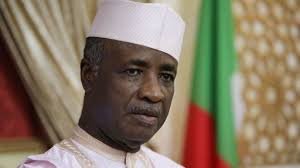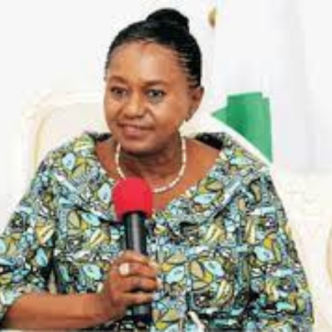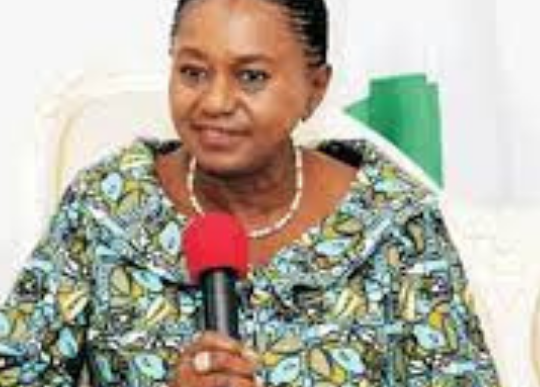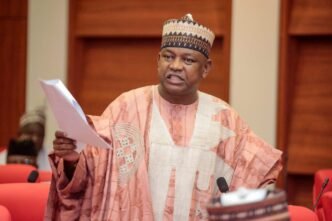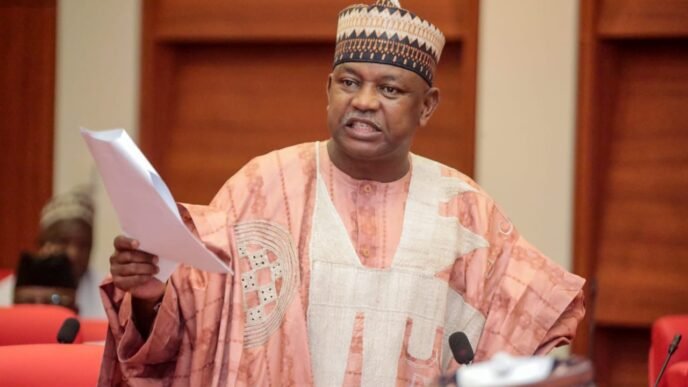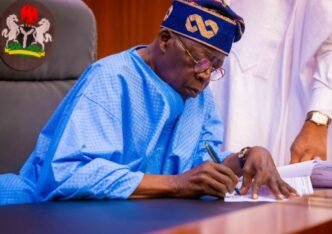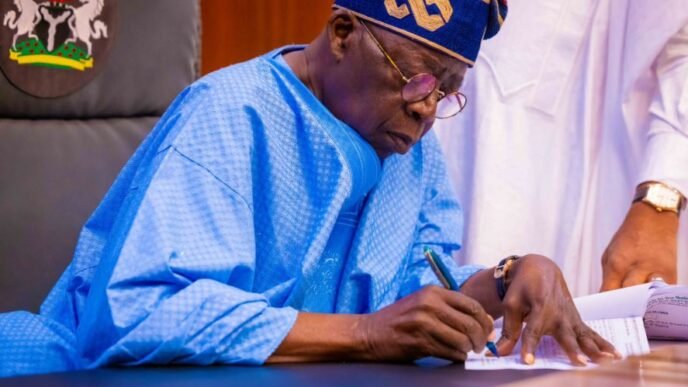Bill Sponsor: Sen. Wammako, Magatarkada Aliyu (Sokoto North) Bill Progress: PRESENTATION AND CONSIDERATION OF REPORTS
Senator Aliyu Magatakarda Wamakko, representing the Sokoto North Senatorial District and currently serving as the Chairman of the Senate Committee on Local and Foreign Debts, has brought to the forefront significant financial proposals aimed at bolstering Nigeria’s economic landscape.
One of the primary focal points of the committee’s report is the 2025-2026 External Borrowing (Rolling) Plan. This ambitious initiative aims to secure over $21 billion in loans from various foreign sources within that two-year timeframe. As part of this package, financing will also be sought in Euros and Japanese Yen. The overarching goal of these funds is to support critical national development projects, particularly in sectors vital to the country’s growth, such as infrastructure, agriculture, and power generation. Stakeholders acknowledge that securing these loans could stimulate economic progress, create jobs, and enhance the living standards of millions of Nigerians.
The necessity for this external borrowing plan underscores the challenges the Nigerian economy faces. Analysts point to a need for increased investment in infrastructure to bridge the gaps in transportation, energy supply, and agricultural productivity. Additionally, with Nigeria’s youthful population and growing urban centers, the demand for modernized facilities and services is ever-increasing. Senator Wamakko’s proposals aim to address these pressing demands holistically, directing funds toward strategic areas that promise not only immediate relief but also long-term benefits.
In conjunction with the external borrowing plan, the committee’s report details the proposed issuance of Federal Government of Nigeria (FGN) Bonds aimed specifically at settling outstanding pension liabilities under the contributory pension scheme. An allocation of up to ₦757 billion has been earmarked for this purpose. This step is particularly crucial as it addresses the accrued rights pension arrears that have accumulated as of December 2023. There has been growing concern over pension obligations, especially as they impact retired public servants who have contributed to the state during their careers. By tackling these liabilities, the government aims to bring financial stability to the pension system and reassure retirees that their benefits will be honored.
The issuance of these FGN Bonds is expected to attract both domestic and international investors. The interest generated from such bonds can play a significant role in easing the financial burdens associated with these pension liabilities while simultaneously fostering investor confidence in Nigeria’s commitment to honoring its financial obligations. The planned bond issuance aligns with global best practices, where robust pension structures are critical to securing financial security for retirees and maintaining social stability.
Lastly, the committee report introduces the notion of a foreign currency-denominated issuance program within the domestic debt market, with the potential to raise up to $2 billion. This innovative program aims to diversify Nigeria’s debt instruments and appeal to a broader range of investors. Allowing for currency variation can offer a safety net against exchange rate fluctuations, thus making investments more attractive to foreign entities. This move is expected to enhance liquidity in the domestic market while ensuring that the government can meet its financing needs without overly relying on local currency borrowing.
The combination of an external borrowing plan, bond issuance to settle pension liabilities, and a foreign currency-denominated issuance program reflects a comprehensive approach to addressing Nigeria’s current financial landscape.
In conclusion, Senator Wamakko’s commitment to tackling Nigeria’s financial challenges is evident through these proposals that seek to establish a sustainable economic framework. His leadership, marked by a background in governance as the former governor of Sokoto State, emphasizes the importance of prudent financial management and strategic investments. The successful implementation of these measures could lead to a more resilient economy, benefitting not only the current population but future generations as well.
